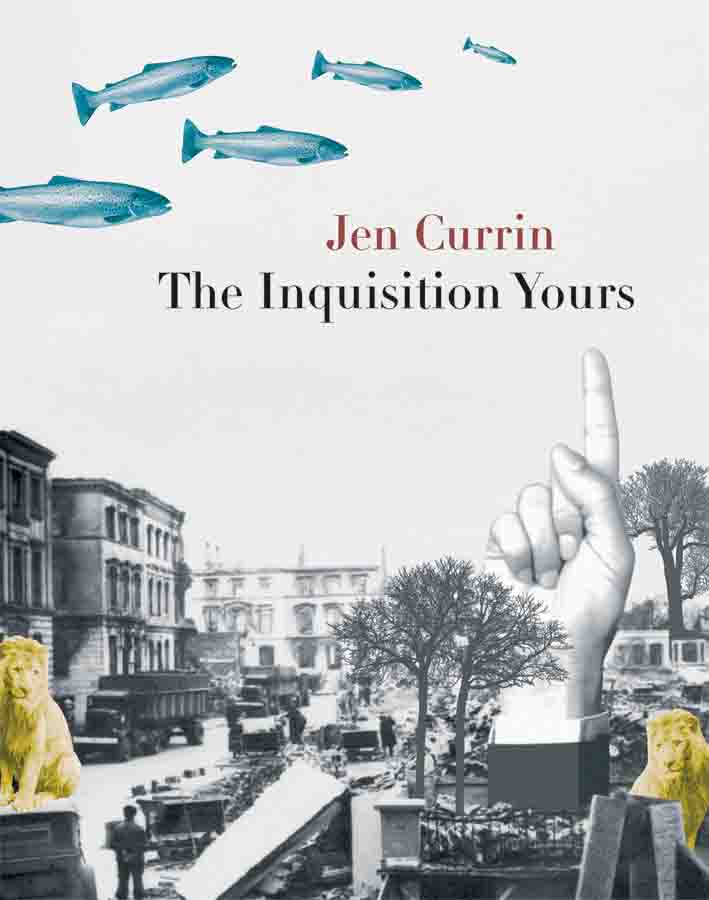Dance
The rain’s small hands. Your logic
shining—it makes no
human sense.
To gather—they are coming—together.
We have missed a beat, find each other
at the apocalyptic disco.
We can buy ready-made love songs
like a dream of wearing girl-shoes.
When you die, all your thoughts
left hovering in the air.
This recommendation letter written by a ghost.
Authority has an “author” in it,
& there is always the possibility
that when someone calls your name—
you don’t turn around.
A suitcase can be filled with money
& so can your mind.
A being might begin.
In our own neighbourhood.
In the streets of this or that thought.
You might move. You might move
someone.

In her ambitious follow-up to Hagiography, acclaimed poet Jen Currin continues her unique exploration of the surrealist lyric, constructing a strong case that, in these frightening times, it may be the best poetic mode for capturing the complexities of lived experience. In tongues alternately vulnerable, defiant, resigned, and hopeful, The Inquisition Yours speaks to the atrocities of our time – war, environmental destruction, terrorism, cancer, and the erosion of personal rights – fashioning a tenuous bridge between the political and the personal. Trying to make sense of a world where even language is ‘a danger,’ Currin’s poems reject the old storylines in favour of a vigilant awareness, and wonder what might happen if we ‘change the feared penmanship’ and embrace a narrative that empowers everyone.
Winner of the Audre Lorde Award for Lesbian Poetry.
Shortlisted for the 2011 Dorothy Livesay Poetry Prize (B.C. Book Prizes), the Lambda Literary Award in Poetry, and the Relit Award.
“More than anything, [The Inquisition Yours] is a world of laughter, a world of physical stasis and a cognitive circus, in which ‘You might move. You might / move someone’ (‘Dance’), in which ‘My comfort lies in these stories / so burn them’ (‘Reading’), and in which ‘we’ are ‘trivial, difficult, unnecessary, and pranksterish’ (‘Another Vulnerability’), whose self-awareness of the prison of poetry and the deadening world of textuality leads us to conclude that ‘Lacking, we turn to laughter.’ This world is the world. It is powered by love.”
Harold Rhenisch, Arc
“Currin updates longstanding surrealist tropes — dreamscapes, disjointed images — with lines that would have been unthinkable to André Breton…This is a new poetry for a new century.”
Marcus McCann, Xtra